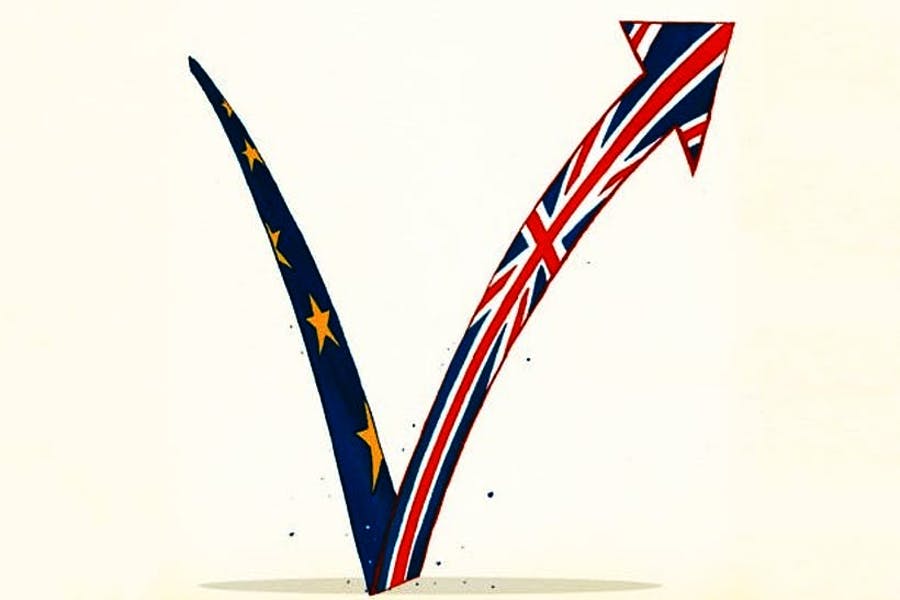The banks would all flee. International investors would take fright. And the pound would turn into the Great British peso. We heard a lot over the last four years about how leaving the European Union would be catastrophic for the UK economy. But here is something odd. With the transitional arrangement coming to an end with the close of the old year, and with the UK now out of the Single Market and the Customs Union, and with just a loose trade arrangement with the rest of the continent that doesn’t even cover financial services, so far the FTSE is loving Brexit.
True, it is only the first week of trading, and even that is not over yet, but so far the benchmark FTSE-100 index has risen from 6,500 on Monday to 6,850 on Thursday. It is off to one of the best starts of any major market. So far this week, the index is up by 5.9 per cent, its best January opening since 2009. A disaster? It is hard to see it that way.
Of course, we shouldn’t read too much into that. The global equity markets are strong this week for a mixture of reasons: accelerating vaccine roll-outs, better than expected Chinese growth, and the upcoming Biden presidency, and the prospect of lots and lots of stimulus for the American economy. All the major markets are up, not just ours.
Even so, it is still striking. In fact, it is clear what is happening. Global investors had been heavily influenced by hardcore Remainer pessimism over the last four years. It is worth keeping in mind that their main news sources (the Financial Times and Bloomberg) have been passionately pro-EU and full of dire warnings about what would happen to the UK once it left. Now that it has actually happened, asset managers have started to work out that not much has changed. There is still food in the shops. Mobile phones still work. The electricity still flows, and even the queues of lorries that were meant to cover most of Kent don’t seem to have materialised.
Ever since the UK voted to leave the EU in the 2016 referendum, global investors have largely shunned the UK. Survey after survey showed it right at the bottom of the ranking of places they wanted to put their money. Now that they can see that, contrary to what they had been told, the economy still functions, they have started to notice that the index is very, very cheap, at least when compared to rivals around the world, and they are starting to put some money back into British equities. That will continue over the next few months.
True, the FTSE is not necessarily a measure of the overall health of the British economy. Its mixture of banks, mining companies, pharmaceuticals conglomerates, and oil giants is an odd selection of businesses. With the exception of the drugs companies, which have discovered some vaccine-inspired sizzle, most don’t have a lot going for them. Still, if the FTSE was down by five per cent this week, we would have heard a lot about how the world was ending from the pro-EU crowd. So it is worth noting that right now, equities are loving being on the outside – and if we can throw in some deregulation they will like it even more.






Comments